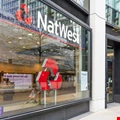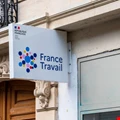Infosecurity News

Hundreds of Malicious Crypto Trading Add-Ons Found in Moltbot/OpenClaw
A security researcher found 386 malicious ‘skills’ published on ClawHub, a skill repository for the popular OpenClaw AI assistant project

SQL Injection Flaw Affects 40,000 WordPress Sites
40,000 WordPress sites are vulnerable to SQL injection in Quiz and Survey Master plugin

DockerDash Exposes AI Supply Chain Weakness In Docker's Ask Gordon
DockerDash vulnerability allows RCE and data exfiltration via unverified metadata in Ask Gordon

UK ICO Launches Investigation into X Over AI Generated Non-Consensual Sexual Imagery
UK Data Protection Watchdog has “serious concerns” over data privacy on Elon Musk’s social platform

Researchers Warn of New “Vect” RaaS Variant
A new ransomware-as-a-service operation dubbed “Vect” features custom malware

Cybercrime Unit of Paris Prosecutors Raid Elon Musk’s X Offices in France
Elon Musk and X’s former CEO were summoned for voluntary interviews in Paris on April 20, 2026

New Password-Stealing Phishing Campaign Targets Corporate Dropbox Credentials
Multi-stage attack begins with fake message relating to business requests and evades detection with link hidden in a PDF

Vibe-Coded Moltbook Exposes User Data, API Keys and More
Wiz Security claims Moltbook misconfiguration allowed full read and write access

NSA Publishes New Zero Trust Implementation Guidelines
NSA released new guidelines to help organizations achieve target-level Zero Trust maturity

Notepad++ Update Hijacking Linked to Hosting Provider Compromise
A supply chain attack on Notepad++ update process was linked to compromised hosting infrastructure

Fancy Bear Exploits Microsoft Office Flaw in Ukraine, EU Cyber-Attacks
Russia-linked hacking group Fancy Bear is exploiting a brand-new vulnerability in Microsoft Office, CERT-UA says

Android RAT Uses Hugging Face to Host Malware
Bitdefender has discovered a new Android malware campaign that uses Hugging Face

Former Google Engineer Found Guilty of Stealing AI Secrets
Linwei Ding, a former Google engineer, has been found guilty of stealing trade secrets for China

Labyrinth Chollima Evolves into Three North Korean Hacking Groups
CrowdStrike assessed that two new threat actor groups have spun off from North Korean Labyrinth Chollima hackers

New AI-Developed Malware Campaign Targets Iranian Protests
The RedKitten campaign distributes lures designed to target people seeking information about missing persons or political dissidents in Iran

National Crime Agency and NatWest Issue Joint Warning Over Invoice Fraud Threat
Cyber fraudsters targeting corporate finance departments costs businesses millions a year

Google Disrupts Extensive Residential Proxy Networks
Google has taken coordinated action against the massive IPIDEA residential proxy network, enhancing customer protections and disrupting cybercrime operations

Operation Winter SHIELD: FBI Issues Call to Arms for Organizations to Improve Cybersecurity
The FBI outlines ten actions which organizations can take to defend networks against cybercriminal and nation-state threats

France Fines National Employment Agency €5m Over 2024 Data Breach
The French data protection regulator said that France Travail’s response to a 2024 data breach violated GDPR

New CISA Guidance Targets Insider Threat Risks
CISA urges action against insider threats with publication of a new infographic offering strategies to manage risks



